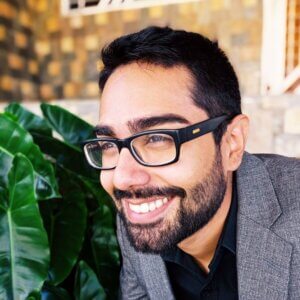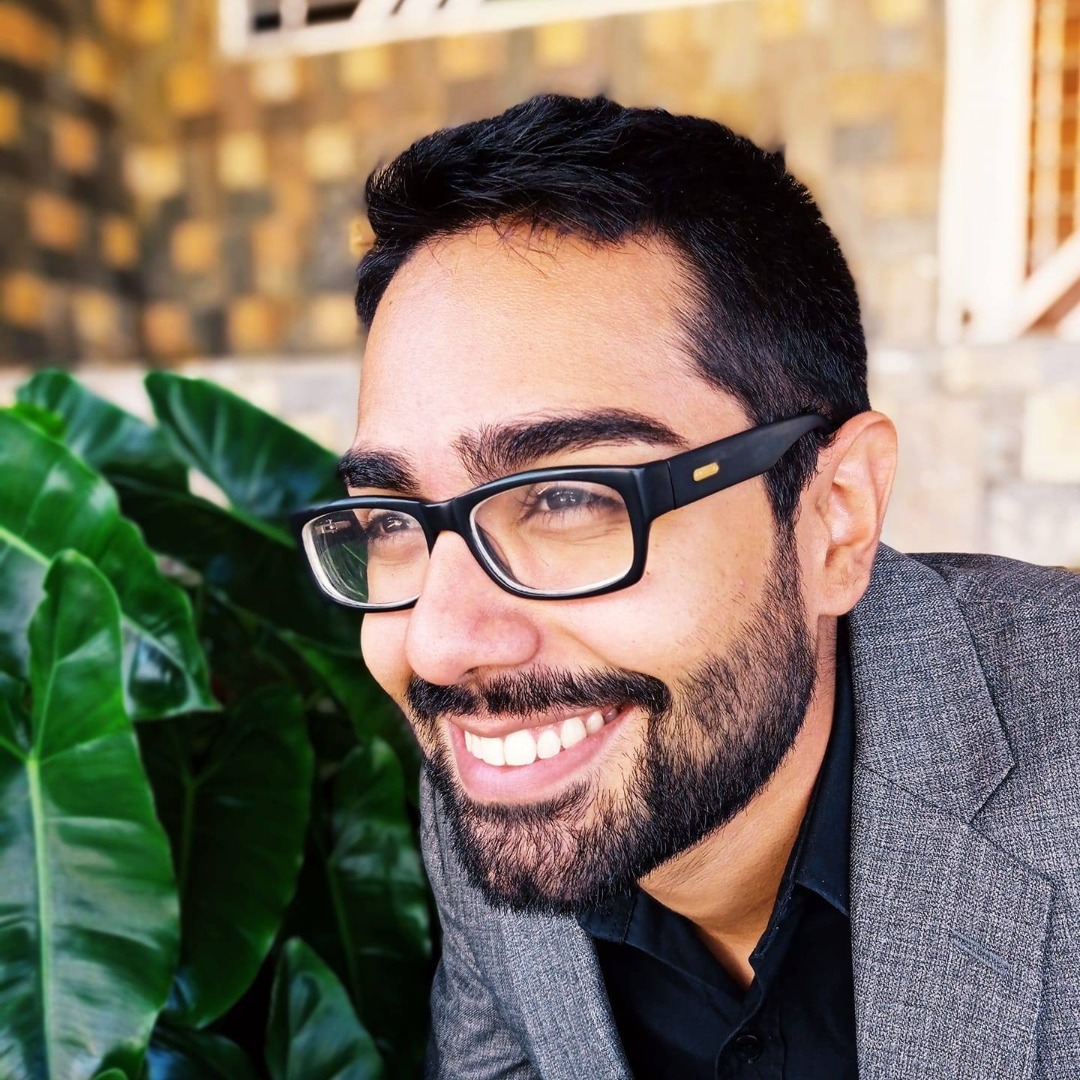The Researcher.Life Ambassador Program is a global community of researchers who wish to give back to their academic communities through mentoring and collaboration with other researchers. Researcher.Life Ambassadors empower themselves and their fellow researchers with advanced tools and services from Researcher.Life that help them do more, be more, and succeed more. Every month we spotlight one Ambassador who has gone the extra mile in supporting their academic community.
Ambassador of the Month: Luiggi Raggio
Luiggi Raggio is a Researcher.Life Ambassador. He is a psychologist who hails from Venezuela and is a researcher in the field of Mental Health.

Could you tell us a little about your research?
I studied Psychology at Arturo Michelena’s University (San Diego, Venezuela) and from the beginning I was stunned by the mechanisms that made up mental disorders, so my first research was about psychosis from a psychoanalytical perspective. Then I was called by my mentor, Dr. Pablo Aponte Miquilena, to make an innovation project (this was not made before in our Carabobo State) to deliver psychological services in the disaster and emergency field. This was a public service focused on preventing psycho-social risks within the Civil Defense System of Carabobo, and to give mental health services to people that have faced psychological trauma. This team was named Psycho trauma Unit. So, we ran together this service even through the pandemic, where we learned and worked a lot.
During this period, I ran a research (along with our Psych trauma Unit) to determine key mental health indicators in the Carabobo’s population during the pandemic. Although the paper was not published at that time, after a while, I was called by the Dean of our Social and Economical Sciences Faculty, Dr. Luis Alonso Hernández, to re-activate our Research Center. I was designated as Academic Secretary, and I did my best to publish the findings that we made with the mental health study about Carabobo’s people.
I continued doing research about mental health, but I was intrigued by a particular behaviour of therapists, I wanted to measure if there was some stigmatization towards mental illness and if this could be a barrier for the progression of therapy. I ran this investigation and also published the findings in the Behavioral Analogies Research Journal of the Catholic University Andrés Bello. After that, I continued my research looking for factors that could foster learning, given the hypothesis that psychotherapeutic change is related to learning processes. But I was intrigued if there was another element in the equation, so I considered multiple intelligences as well; just a hypothesis I am still working. So, I ran a first study to determine if and how learning styles could be related. My first findings (and also other’s researchers) suggest that they are related in various ways. I am still fascinated with mental disorders, trying to find out how they originate and what can make the difference to really help people with scientific tools.
How did you get interested in this field?
I was interested in this field because of my reading influences, I was first totally in Freud’s Psychoanalysis but after a while I started to question many precepts. Today I do research mostly from psychometric and behavioral perspective. Though, I do not criticize any psychological stream.
What are you currently working on now?
I realized that many psychological problems were originated in the context of professional and laboral issues, so I am currently doing research about psycho-social risk factors and organizational climate variables that can foster worker’s quality of life. I think I have become more interested in the study of mechanisms of psychological growth, resilience and emotional intelligence. But one never knows, I just follow my curiosity along with the data.
Why did you decide to become a Researcher.Life Ambassador?
When I discovered Researcher.Life I was like, “I found people like me”, so I think I decided to “be part”. I wanted to share with other researchers and learn about them. I think this was my first drive, to share that I found really helpful tools and a community.
What is the best part about working in research?
Challenge your own beliefs. I think research and science, generally speaking, make you humble regarding your way of seeing the world. I do science as a job, but also as a profoundly personal experience. I am fascinated with human behavior, culture, language, thinking and so on, so I want to discover the principles that explains them, to make my own perceptions more accurate. The best part of working on research is to learn every day.
And the most challenging part about working in research?
Staying focused. This is a very personal thought. When you do research about a field that has so many variables imbricated, it is easy to get lost in the (academic) streams. So one has to make plans and draw a path to get results and still get going. I don’t like to close my mind to new possibilities and I will follow the data wherever it leads, but clearly, one has to be organized and structured. Otherwise, it is easy to get lost in the infinite ocean of knowledge.
What is the one thing you want people to know about Researcher.Life?
People, you join the Researcher.Life because of the inherent gain and connection. They will learn and be current with the trending issues in research. Here is a community of researchers that are passionate about what they do and want to give their best. Researcher.Life supports researchers with AI tools that really will speed up your work so that you can really focus on what is important – Science.
How has Researcher.Life Ambassador Program helped you in empowering the research community?
I have been able to write a blog article talking about leadership in scientific context, and also we ran a Facebook Live where we talked about innovation within scientific research. So, I am glad of having the opportunity to share these insights with the researcher community (this also has been a challenge for me). I really hope that you may find value with this information, and I would like to keep doing it because we learn more than we think, when we share.
Would you like to give back to the academic community? Consider becoming a Researcher.Life Ambassador – apply today! Learn more about the Researcher.Life Ambassador Program here



